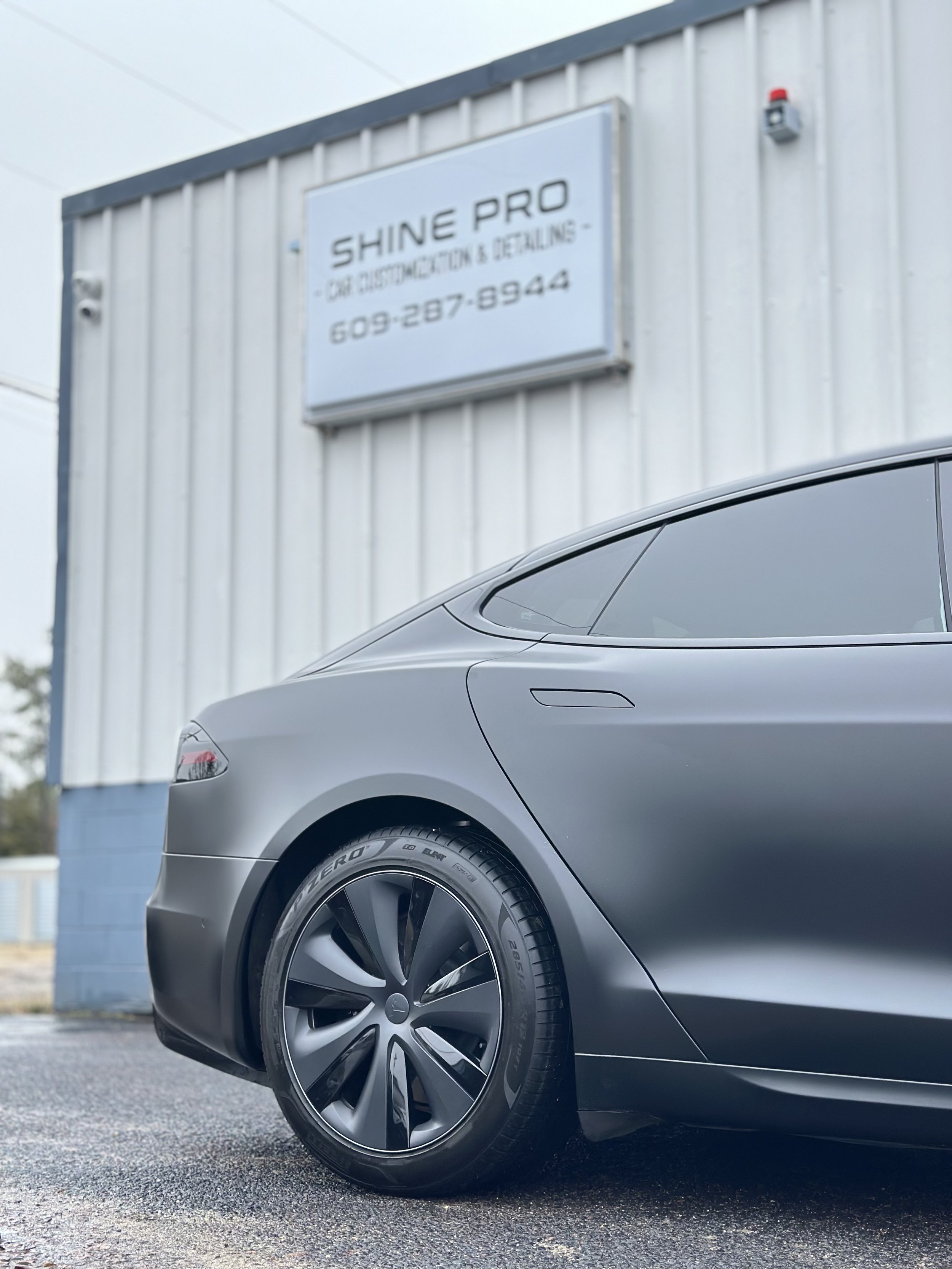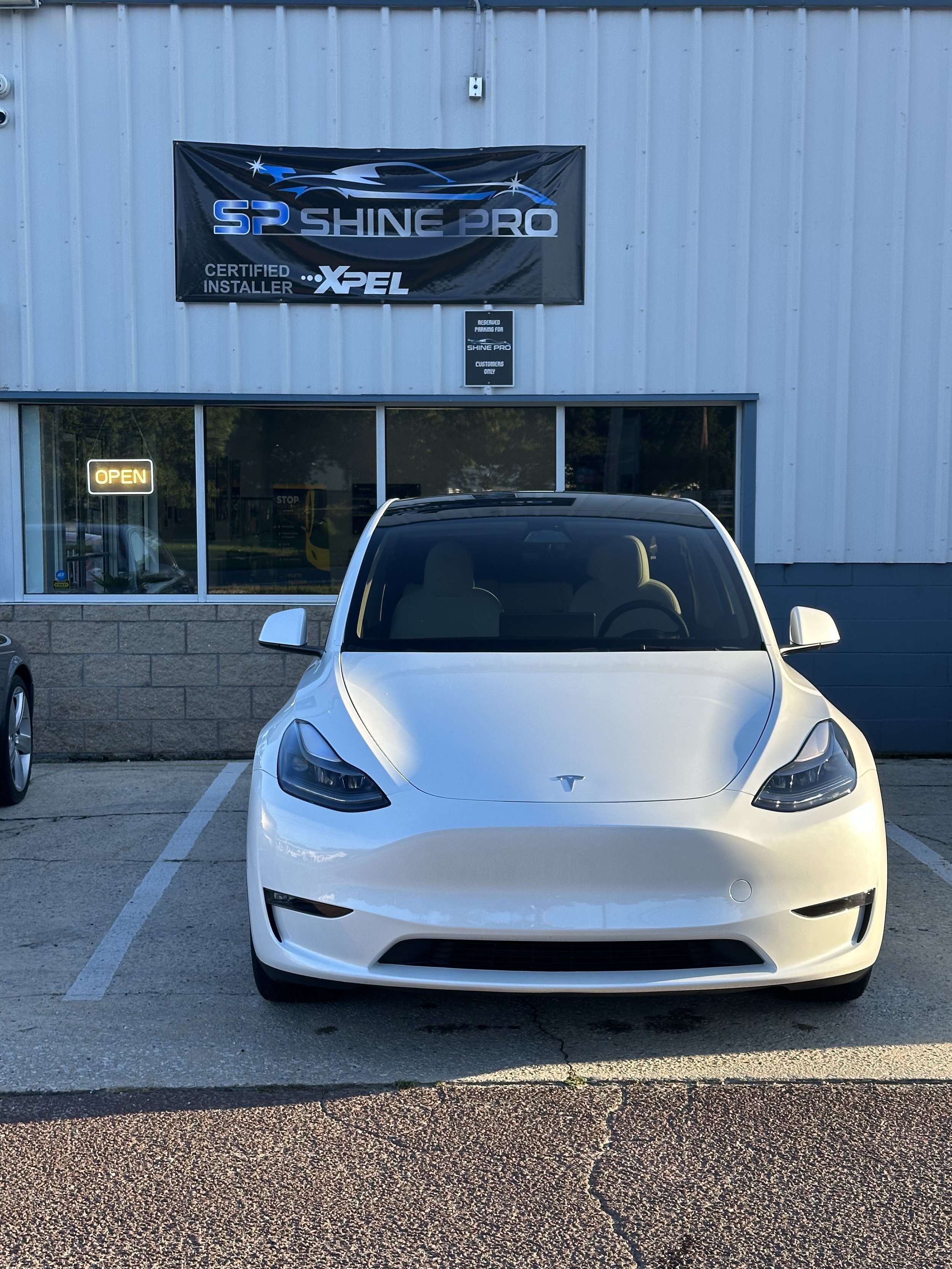
South Jersey
Tesla Ceramic Window Tint
Superior Clarity, Advanced Protection
SHINE PRO
CERAMIC WINDOW TINT
Ceramic tint refers to a type of window film used for tinting windows in vehicles, homes, or commercial buildings. Unlike traditional window tint films that may contain metal, dyes, or carbon, ceramic tint is made using ceramic particles. These particles are non-metallic and are typically nano-ceramic technology.
The ceramic particles in the tint film are designed to block infrared radiation and ultraviolet (UV) rays while allowing visible light to pass through. This helps in reducing heat absorption within the enclosed space, protecting the interior from UV damage, and providing glare reduction. Ceramic tint is known for its high heat rejection capabilities without compromising visibility.
-
Heat Rejection:
Ceramic tint is effective in blocking a significant amount of infrared heat, helping to keep the interior of a vehicle or building cooler.
-
UV Protection
It provides excellent protection against harmful UV rays, which can cause damage to the skin and fade interior furnishings.
-
Reduced Glare
Ceramic tint can reduce glare from sunlight, making it more comfortable for occupants and improving visibility.
-
Enhanced Clarity
Unlike some traditional tint films, ceramic tint does not interfere with electronic signals like GPS, radio, or mobile devices, and it maintains optical clarity.
-
Durability
Ceramic tint is often more durable than some other types of window tint, resisting fading and discoloration over time.
-
Fade Resistance:
Unlike dyed or metallic window tinting films, ceramic tints are more resistant to fading over time.

While ceramic tint tends to be more expensive than other types of window tint, many people opt for it due to its superior performance and the benefits it offers, especially in terms of heat rejection and UV protection. It is commonly used in high-end vehicles, homes, and commercial buildings where superior performance and aesthetics are desired.
NEW JERSEY WINDOW TINTING DISCLAIMER
New Jersey provides specific legal guidelines about tinting as well as other potential blocks to visibility in your car windows.
In fact, the legislation specifies that drivers cannot operate a vehicle that is “constructed, equipped, or loaded” to the point where it interferes with their ability to see out the front and sides of the vehicle.
Apart from window tint rules, the legislation also states that you cannot place signs, stickers, posters, or anything else that is “non-transparent” on the windshield, front side windows, or other connected areas (such as deflectors or wings) without express “commissioner” permission.
In short, that means anything other than a mandated parking sticker likely is “illegal” according to the law.
When it comes to tinting, the law is equally specific and prohibitive.
Initially, the state enacted window tint legislation in 2003 with the most recent update in 2018.
According to R.S.39:3-74, you may not have any “tinted material or film” on the windshield or front driver and passenger windows unless it meets three specific requirements.
Those three rules are either:
The tint/film must have come with the vehicle and permit light transmittance below 70 percent, except at the top six inches of the windshield,
Meet the medical exemption specifications,
Or be installed for law enforcement purposes.
The rear window and back side windows can have any level of darkness tint, without restriction.
New Jersey tint laws apply to both passenger and multi-purpose vehicles.



